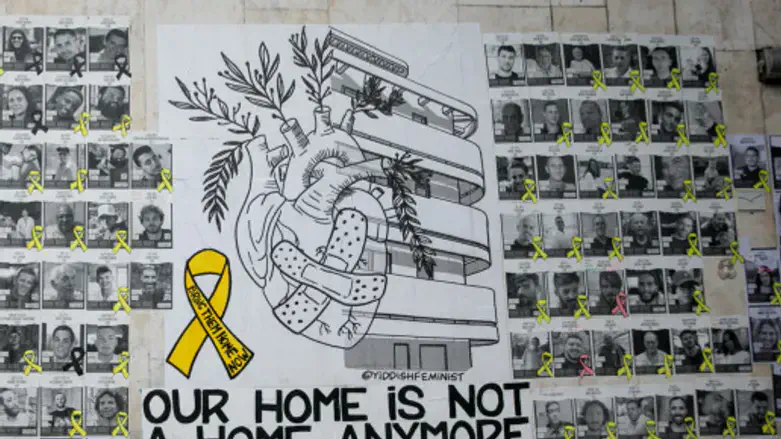
Hamas officially announced on Sunday evening that it is rejecting the proposal for an agreement for the release of hostages and a ceasefire as presented at the summit in Doha, Qatar.
"The proposal completely meets Netanyahu's conditions and especially his refusal to a permanent ceasefire and a complete withdrawal from the Gaza Strip, and his insistence on continuing to occupy the Netzarim axis, the Rafah crossing and the Philadelphi Corridor. It also adds new conditions regarding the exchange of prisoners, and a withdrawal of the Israeli position in other sections, which prevents the success of the deal," Hamas said.
The terrorist organization also stated that "Hamas places full responsibility on Netanyahu for the failure of the efforts of the mediators, and the failure to reach an agreement, as well as the full responsibility for the lives of the hostages, who face the same dangers that the Palestinians face due to the war."
Hamas demanded a complete withdrawal of the IDF from the Philadelphi Corridor and a minimal release of living hostages.
The statement followed another round of talks in Qatar at the end of last week. On Saturday night, the office of Prime Minister Benjamin Netanyahu expressed "cautious optimism" on the negotiations for a deal with Hamas.
"The hostage negotiation team updated the Prime Minister today on the status of the talks that took place in Doha," the Prime Minister’s Office said in a statement.
"The team expressed to the Prime Minister cautious optimism regarding the possibility of progress on the deal, in accordance with the updated American proposal (based on the May 27th framework), including components acceptable to Israel.”
"It is hoped that the heavy pressure on Hamas by the United States and the mediators will remove its opposition to the American proposal and will lead to a breakthrough in the talks."
According to reports, Israel agreed to compromise on its ability to veto the release of certain highly-dangerous convicted terrorists, in exchange for an increase in the number of hostages released each week during the first stage of the proposed deal.
The US mediators also proposed to support Israel's demand that weapons not be smuggled from southern Gaza to northern Gaza, and that if such smuggling were detected, it would constitute a violation of the deal and allow Israel to resume military operations in Gaza.
On Sunday, Netanyahu said at the start of the Cabinet meeting that pressure should be placed on Hamas to agree to a deal.
“Once again, I would like to emphasize: Up until now, Hamas has been completely obstinate. It did not even send a representative to the talks in Doha. Therefore, the pressure needs to be directed at Hamas and Sinwar, not the Government of Israel. Strong military and diplomatic pressure are the way to secure the release of our hostages," said Netanyahu.

